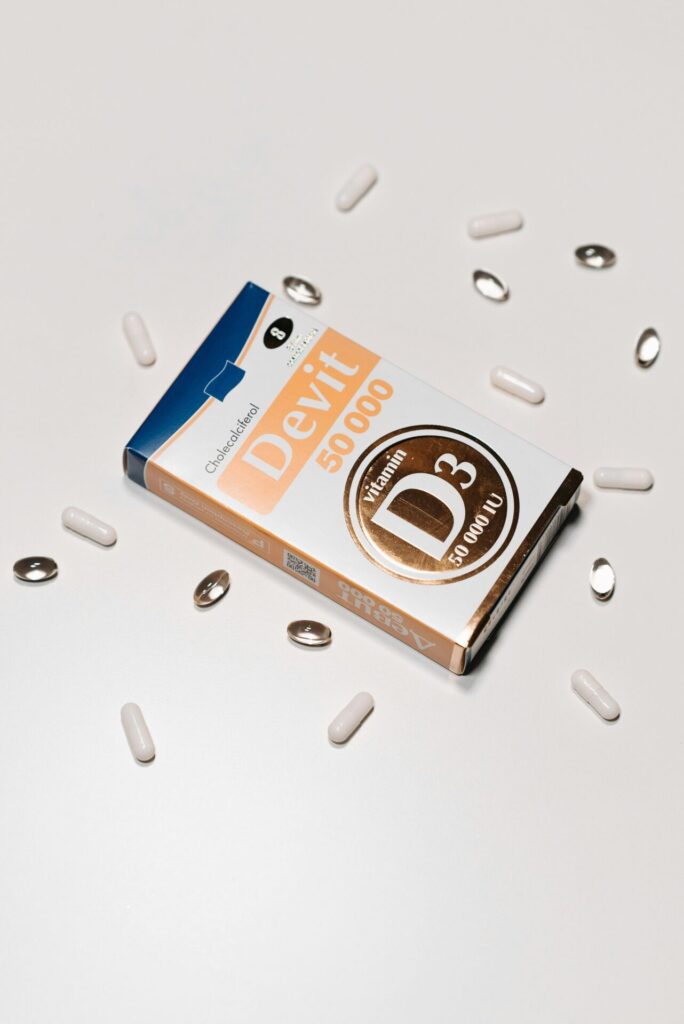Do Vitamins C and D Really Help Fight COVID-19? An In-Depth Look at Their Effectiveness
Contents
- 1 Do Vitamins C and D Really Help Fight COVID-19? An In-Depth Look at Their Effectiveness
- 1.0.0.0.0.1 Read DISCLAIMER
- 1.0.0.0.0.2 The material presented here is for general informational and educational purposes only and is not medical advice. Although we attempt to provide current and accurate information, this blog should not be used as a replacement for professional medical consultation, diagnosis, or treatment. In all cases, consult your physician or an accredited medical practitioner with regards to any medical condition or treatment. Do not ignore professional medical advice or wait for it on the basis of information provided by this blog. In a medical emergency, call emergency services immediately.
- 1.1 Introduction: The Role of Vitamins in Boosting Immunity
- 1.2 Understanding Vitamin C: The Immune System’s Ally
- 1.3 Vitamin C’s Effect on the Body During Infection
- 1.4 Vitamin D: The Sunshine Vitamin’s Role in Immunity
- 1.5 The Link Between Vitamin D Deficiency and Respiratory Infections
- 1.6 The Science Behind Vitamin C and D in COVID-19: What Does the Research Say?
- 1.7 Should You Take Vitamin C and D for COVID-19 Prevention?
- 1.8 Conclusion: Vitamins C and D—A Part of the Puzzle, Not the Whole Solution
- 1.9 Final Thoughts
- 1.10 FAQs with Answers:
Are vitamins C and D effective for fighting COVID-19? Discover the science behind their role in boosting immunity and supporting recovery.
Read DISCLAIMER
The material presented here is for general informational and educational purposes only and is not medical advice. Although we attempt to provide current and accurate information, this blog should not be used as a replacement for professional medical consultation, diagnosis, or treatment. In all cases, consult your physician or an accredited medical practitioner with regards to any medical condition or treatment. Do not ignore professional medical advice or wait for it on the basis of information provided by this blog. In a medical emergency, call emergency services immediately.
Introduction: The Role of Vitamins in Boosting Immunity
When the COVID-19 pandemic hit, the world came to a standstill, and the search for treatments and preventative measures intensified. Among the many supplements that gained attention, vitamins C and D emerged as the front-runners. Their potential to support immune health led many to ask: Can these vitamins help fight off COVID-19?
The conversation around vitamins and their immune-boosting properties isn’t new, but the pandemic brought a surge of interest. People rushed to the shelves, buying vitamin C tablets and vitamin D supplements in the hope of strengthening their defenses. But with so much conflicting information, it’s easy to feel overwhelmed. Are these vitamins really effective? Or is it all just a marketing tactic?
In this post, we’ll take a deep dive into the effectiveness of vitamins C and D in fighting COVID-19. We’ll explore the science, understand the claims, and offer insights based on what we know so far.

Understanding Vitamin C: The Immune System’s Ally
Vitamin C, also known as ascorbic acid, has been lauded for its role in supporting the immune system for decades. But why exactly is it so important?
The immune system is a complex network of cells, tissues, and organs that work together to defend the body against harmful pathogens. Vitamin C plays a crucial role in this defense by supporting the function of various immune cells, including T-cells, which are responsible for identifying and eliminating infected cells. It also helps in the production of collagen, which is important for the skin, blood vessels, and mucous membranes—the body’s first line of defense against pathogens.
Vitamin C’s Effect on the Body During Infection
The key question is: Does vitamin C have any direct effect on viral infections, specifically COVID-19? Research has shown that vitamin C can reduce the severity and duration of common colds, which are caused by different viruses. However, when it comes to COVID-19, things are more complex.
While there is no concrete evidence to suggest that vitamin C can prevent or cure COVID-19, studies have pointed out that maintaining adequate vitamin C levels might help support the body’s natural defenses. Vitamin C is an antioxidant, meaning it helps protect cells from damage caused by free radicals during an infection. It’s also thought to support the function of white blood cells, which are pivotal in the immune response.
Although it’s unlikely that a simple vitamin C supplement will prevent COVID-19, it’s clear that vitamin C plays a supportive role in maintaining immune health, especially when the body is under stress from an infection.

Vitamin D: The Sunshine Vitamin’s Role in Immunity
Vitamin D has also gained significant attention during the pandemic. Dubbed the “sunshine vitamin” because it is synthesized in the skin when exposed to sunlight, vitamin D is crucial for many bodily functions, including immune response.
Vitamin D plays a vital role in the activation of T-cells, which help recognize and fight off pathogens. It also helps regulate the immune system by ensuring that the body doesn’t overreact to infections, which can result in harmful inflammation.
The Link Between Vitamin D Deficiency and Respiratory Infections
One of the most significant findings that emerged during the pandemic was the connection between vitamin D deficiency and an increased risk of severe COVID-19 outcomes. Research suggested that people with lower vitamin D levels were more likely to experience complications from COVID-19, including severe respiratory issues and hospitalization.
The reasoning behind this is rooted in vitamin D’s regulatory effects on the immune system. Low levels of vitamin D may impair the body’s ability to fight off infections efficiently, leading to an increased risk of severe illness.
However, while vitamin D deficiency appears to correlate with poorer outcomes in COVID-19 cases, it’s important to note that supplementation isn’t a cure. Taking vitamin D in isolation won’t necessarily prevent infection, but ensuring optimal levels might support the body in fighting off the virus more effectively.

The Science Behind Vitamin C and D in COVID-19: What Does the Research Say?
While many people turned to vitamin C and D as potential shields against COVID-19, the scientific community’s response has been cautious. Research is still ongoing, and many studies are inconclusive or show only modest results. So, what do we really know?
Vitamin C Studies and COVID-19
Several studies have explored vitamin C’s role in respiratory infections. High doses of vitamin C have been shown to reduce the severity and duration of symptoms in people suffering from the common cold. However, COVID-19 is a different beast entirely. Some preliminary studies suggest that vitamin C may have a role in reducing inflammation and supporting immune function in COVID-19 patients, especially in critical care settings. But these findings are not yet definitive.
Vitamin D and COVID-19
On the other hand, the link between vitamin D and COVID-19 has been more promising. A large-scale review of studies revealed that individuals with low levels of vitamin D were more likely to test positive for the virus and suffer from severe complications. This has led some to suggest that vitamin D supplementation could be part of a broader strategy to prevent severe illness.
However, the evidence is still inconclusive. While vitamin D appears to support immune health, it’s not a miracle cure. Ensuring adequate levels of vitamin D is important for overall well-being, but more research is needed to determine its effectiveness specifically for COVID-19.

Should You Take Vitamin C and D for COVID-19 Prevention?
Now, with all the information laid out, the question remains: Should you take vitamin C and D as a defense against COVID-19?
For Prevention
If you are already healthy and not at high risk of severe illness, taking vitamin C and D may not dramatically reduce your chances of contracting COVID-19. However, maintaining optimal levels of both vitamins is beneficial for overall immune health. It’s not a cure, but it may help your body handle infections better when they arise.
If you are deficient in these vitamins, supplementation can help restore balance and support immune function. But always consult a healthcare provider before starting any new supplement regimen, as too much of certain vitamins can have adverse effects.
For Recovery
In the event that you contract COVID-19, there’s no harm in continuing to take these vitamins, provided they are taken at recommended levels. Some studies suggest that vitamin D in particular may help reduce the severity of symptoms, although more research is needed to confirm this. Vitamin C may also help support recovery, especially by reducing oxidative stress.
Conclusion: Vitamins C and D—A Part of the Puzzle, Not the Whole Solution
While the role of vitamins C and D in preventing and managing COVID-19 is still being studied, they are undoubtedly important for maintaining overall health. A well-balanced diet rich in fruits, vegetables, and sunlight is key to ensuring you get adequate amounts of these vitamins.
It’s important to remember that no single vitamin or supplement can protect you from a virus. The most effective strategy for preventing COVID-19 involves a combination of vaccination, hygiene practices, and maintaining a healthy lifestyle.
In the end, vitamins C and D may not be the magic bullet many hope for, but they play an essential role in supporting the body’s natural defense systems. So, while you wait for definitive answers from ongoing research, keeping your vitamin levels in check is a smart choice for both your immune system and overall well-being.
Final Thoughts
At the heart of the conversation about vitamins and COVID-19 is a powerful reminder: our bodies are incredibly resilient, but they need support. Whether through balanced nutrition, exercise, or the right supplements, taking care of our immune system can make a real difference. As we continue to learn more about COVID-19 and its long-term effects, one thing is clear: proactive health is always the best strategy. Stay informed, stay healthy, and never underestimate the power of a balanced approach to wellness.
FAQs with Answers:
- Can vitamin C prevent COVID-19?
While vitamin C is known for boosting the immune system, there’s no evidence to suggest that it can prevent COVID-19. However, it may help reduce the severity and duration of symptoms if you become infected. - How does vitamin C help the immune system?
Vitamin C supports the immune system by encouraging the production and function of white blood cells, which are crucial for fighting off infections. It also acts as an antioxidant, reducing inflammation and oxidative stress during illness. - What role does vitamin D play in immune health?
Vitamin D regulates the immune system by enhancing the pathogen-fighting effects of immune cells like T-cells and macrophages. It also helps prevent excessive inflammation that could harm the body during an infection. - Can vitamin D reduce the severity of COVID-19?
Research suggests that vitamin D deficiency is linked to an increased risk of severe COVID-19 outcomes. While vitamin D supplements may not cure the virus, they might help improve immune response and reduce the severity of symptoms. - Is it safe to take vitamin C and D during a COVID-19 infection?
For most people, taking vitamin C and D during a COVID-19 infection is safe, provided they are taken at recommended dosages. These vitamins can support the immune system as it fights the virus but are not a cure. - How does vitamin D deficiency affect COVID-19 outcomes?
Studies indicate that people with low vitamin D levels are more likely to experience severe COVID-19 symptoms and complications. Vitamin D plays a critical role in immune response and inflammation regulation. - Can vitamin C cure COVID-19?
No, vitamin C cannot cure COVID-19. While it plays a role in supporting the immune system, there is no evidence to suggest that it can treat the virus directly. - How can I ensure I get enough vitamin C?
Vitamin C is found in citrus fruits like oranges and lemons, as well as in strawberries, bell peppers, and leafy greens. Including these foods in your diet can help ensure you’re getting enough vitamin C to support immune health. - What are the symptoms of vitamin D deficiency?
Symptoms of vitamin D deficiency include fatigue, bone pain, and muscle weakness. In severe cases, it can contribute to bone thinning and increase the risk of respiratory infections. - Should I take vitamin D supplements if I have COVID-19?
If you are deficient in vitamin D, supplementation may help support your immune system. However, you should consult a healthcare provider before taking high doses of any supplement. - Can I get enough vitamin D from the sun alone?
Vitamin D can be synthesized in the skin when exposed to sunlight, but factors like skin tone, geographic location, and sun exposure time can affect how much vitamin D you produce. Many people need supplements to maintain optimal levels. - What happens if you take too much vitamin C?
While vitamin C is water-soluble and excess amounts are typically excreted in urine, taking very high doses can cause gastrointestinal discomfort, such as diarrhea and nausea. - Can vitamin D prevent respiratory infections?
Some studies suggest that vitamin D can reduce the risk of respiratory infections, including flu and pneumonia. However, its role in preventing specific viral infections like COVID-19 is still under investigation. - Are there any risks to taking too much vitamin D?
Yes, taking excessive amounts of vitamin D can lead to toxicity, resulting in symptoms like nausea, weakness, and kidney damage. It’s important to follow the recommended daily intake and consult a doctor before taking large doses. - What is the best way to maintain a healthy immune system during COVID-19?
In addition to taking vitamins C and D, maintaining a healthy diet, regular exercise, staying hydrated, and getting enough sleep are key to supporting the immune system during the pandemic.

idt8xg
Hi there very cool blog!! Man .. Excellent .. Amazing .. I will bookmark your web site and take the feeds additionally…I’m happy to search out so many useful info here within the post, we’d like work out more techniques on this regard, thanks for sharing. . . . . .
**mindvault**
mindvault is a premium cognitive support formula created for adults 45+. It’s thoughtfully designed to help maintain clear thinking
**sugarmute**
sugarmute is a science-guided nutritional supplement created to help maintain balanced blood sugar while supporting steady energy and mental clarity.
**gl pro**
gl pro is a natural dietary supplement designed to promote balanced blood sugar levels and curb sugar cravings.
**vitta burn**
vitta burn is a liquid dietary supplement formulated to support healthy weight reduction by increasing metabolic rate, reducing hunger, and promoting fat loss.
**prodentim**
prodentim an advanced probiotic formulation designed to support exceptional oral hygiene while fortifying teeth and gums.
**glucore**
glucore is a nutritional supplement that is given to patients daily to assist in maintaining healthy blood sugar and metabolic rates.
**prostadine**
prostadine is a next-generation prostate support formula designed to help maintain, restore, and enhance optimal male prostate performance.
**sleep lean**
sleeplean is a US-trusted, naturally focused nighttime support formula that helps your body burn fat while you rest.
**synaptigen**
synaptigen is a next-generation brain support supplement that blends natural nootropics, adaptogens
**nitric boost**
nitric boost is a dietary formula crafted to enhance vitality and promote overall well-being.
**wildgut**
wildgutis a precision-crafted nutritional blend designed to nurture your dog’s digestive tract.
**mitolyn**
mitolyn a nature-inspired supplement crafted to elevate metabolic activity and support sustainable weight management.
**zencortex**
zencortex contains only the natural ingredients that are effective in supporting incredible hearing naturally.
**yu sleep**
yusleep is a gentle, nano-enhanced nightly blend designed to help you drift off quickly, stay asleep longer, and wake feeling clear.
**breathe**
breathe is a plant-powered tincture crafted to promote lung performance and enhance your breathing quality.
**pineal xt**
pinealxt is a revolutionary supplement that promotes proper pineal gland function and energy levels to support healthy body function.
**energeia**
energeia is the first and only recipe that targets the root cause of stubborn belly fat and Deadly visceral fat.
**prostabliss**
prostabliss is a carefully developed dietary formula aimed at nurturing prostate vitality and improving urinary comfort.
**boostaro**
boostaro is a specially crafted dietary supplement for men who want to elevate their overall health and vitality.
**potentstream**
potentstream is engineered to promote prostate well-being by counteracting the residue that can build up from hard-water minerals within the urinary tract.
**hepatoburn**
hepatoburn is a premium nutritional formula designed to enhance liver function, boost metabolism, and support natural fat breakdown.
**hepatoburn**
hepatoburn is a potent, plant-based formula created to promote optimal liver performance and naturally stimulate fat-burning mechanisms.
**flow force max**
flow force max delivers a forward-thinking, plant-focused way to support prostate health—while also helping maintain everyday energy, libido, and overall vitality.
**prodentim**
prodentim is a forward-thinking oral wellness blend crafted to nurture and maintain a balanced mouth microbiome.
**cellufend**
cellufend is a natural supplement developed to support balanced blood sugar levels through a blend of botanical extracts and essential nutrients.
**neurogenica**
neurogenica is a dietary supplement formulated to support nerve health and ease discomfort associated with neuropathy.
**revitag**
revitag is a daily skin-support formula created to promote a healthy complexion and visibly diminish the appearance of skin tags.
Hondrolife per dolore articolare a Firenze – prodotto originale.
Le articolazioni sono sane. Prezzo basso
Valorbetcasino… haven’t heard much about this one, but I gave it a go the other day. Looks pretty solid, good range of games and decent bonuses. Give it a shot if you’re feeling lucky. Check out Valorbetcasino here: valorbetcasino
Alright peeps, EC777game’s got some cool stuff going on. Give it a look if you’re bored. Just sayin’ ec777game!
FortuneTiger4 is really fun to play, the rewards are pretty good; I have never played anything like this; you should try it! fortunetiger4
**mitolyn reviews**
Mitolyn is a carefully developed, plant-based formula created to help support metabolic efficiency and encourage healthy, lasting weight management.
you’ve a terrific blog right here! would you wish to make some invite posts on my blog?